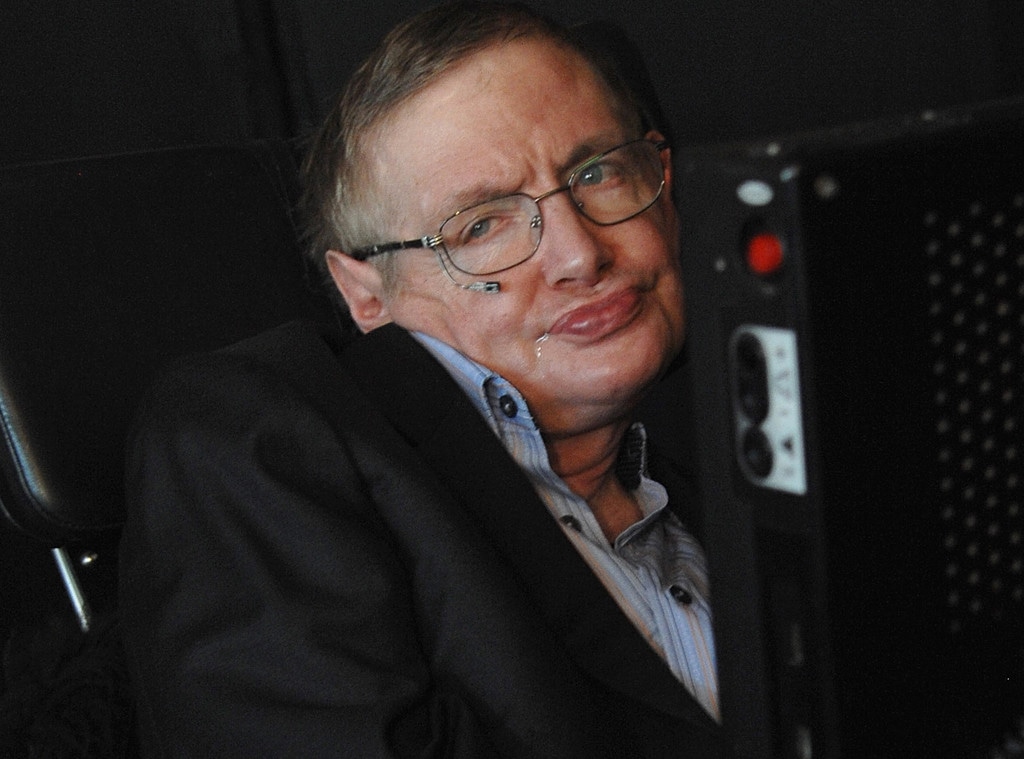 Dimitrios Kambouris/WireImage
Dimitrios Kambouris/WireImageStephen Hawking has said he would consider ending his life if he became a burden to others.
In an interview that is set to air on the BBC, the famed physicist told interviewer Dara O'Briain he would do it only if he "had nothing more to contribute. "To keep someone alive against their wishes is the ultimate indignity," said Hawking, 73, per The Guardian. "I would consider assisted suicide only if I were in great pain or felt I had nothing more to contribute but was just a burden to those around me."
Fortunately, he doesn't think isn't coming any time soon, as he still has a lot more work to do before departing. "I am damned if I'm going to die before I have unravelled more of the universe," he said.
Hawking, who was diagnosed with a motor neuron disease when he was 21 years old, has been wheelchair bound for decades and speaks with the help of a speech synthesizer. He told O'Briain that his speech difficulties often make him feel isolated because of how hard it makes interacting with others.
"At times I get very lonely because people are afraid to talk to me or don't wait for me to write a response," he said. "I'm shy and tired at times. I find it difficult to talk to people I don't know."
The cosmologist has been vocal about his support for euthanasia, which is legal in the United Kingdom, in the past. In 2014 he revealed that he tried to commit suicide after a tracheotomy operation in the mid-1980s.
"I briefly tried to commit suicide by not breathing," he said. "However, the reflex to breathe was too strong."
He has even likened assisted suicide to the putting-down of animals, rhetorically asking the BBC, "We don't let animals suffer, so why humans?"
Hawking, who was given two years to live upon diagnosis, has never gotten over the frustrations of not being able to move. "I would like to be able to swim again," he said. "When my children were young, I missed not being able to play with them physically."
The full interview will air on June 16.